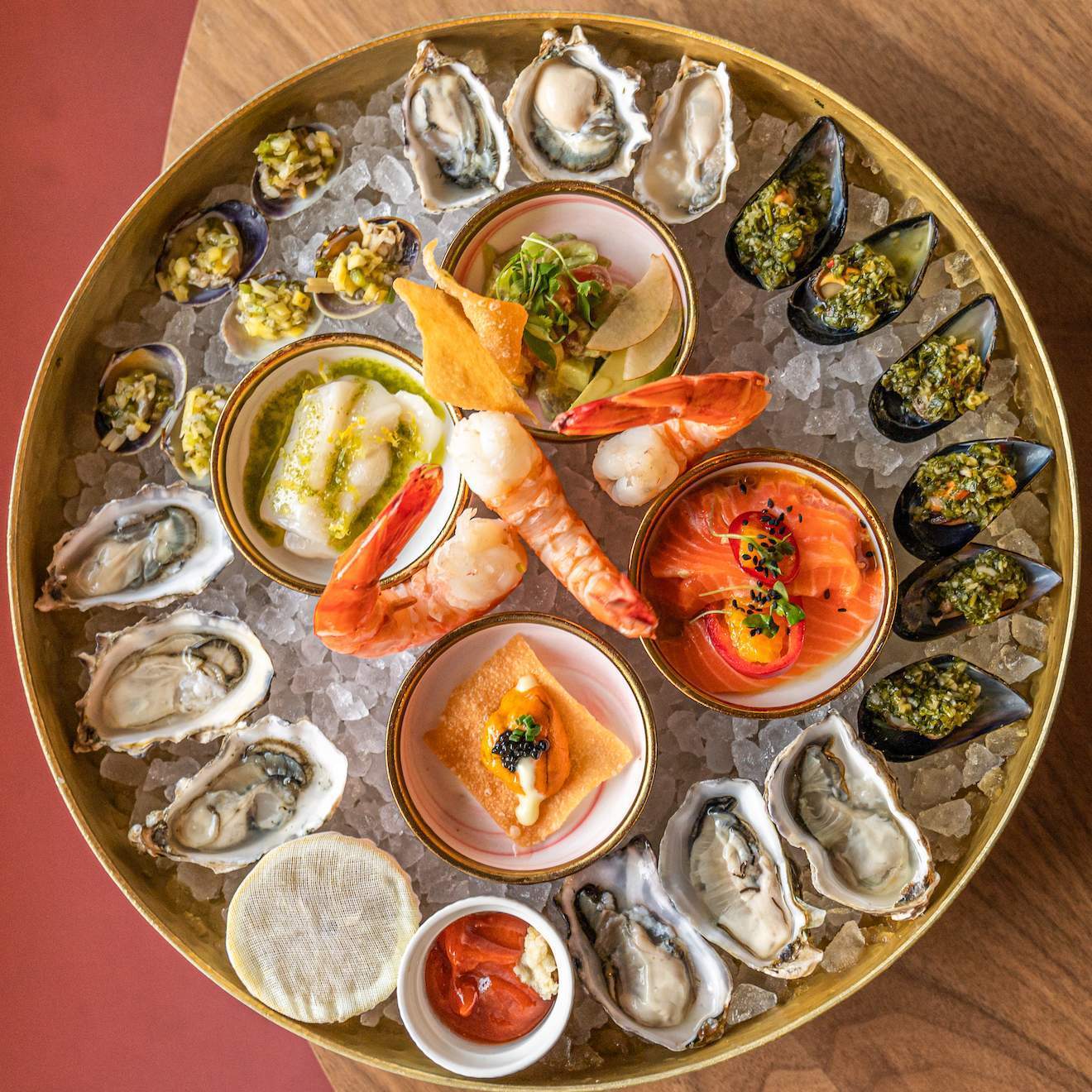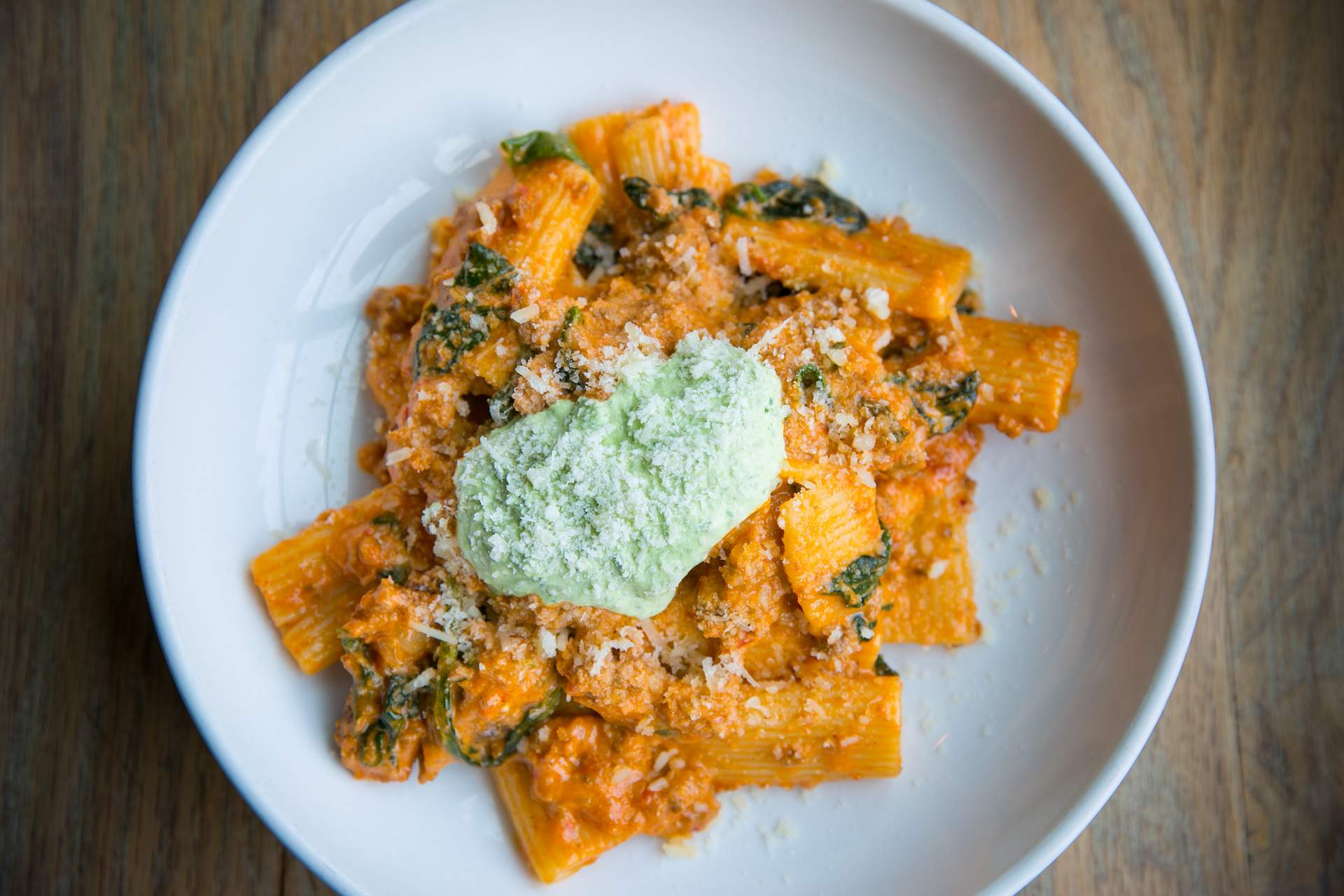Across the nation, restaurants are raising the sustainability bar, embracing hyper-local sourcing, minimizing food waste, and including more plant-based meals than ever before. While sustainable practices were relegated to internal staff discussions in the past, chefs and restaurateurs now proudly display their eco-conscious efforts.
The vibe shift is evident. In New York City, a sushi and sashimi spot dedicated to transparent sourcing gets bluefin tuna from its own fish farm in western Japan. A family-owned New American hotspot in Washington, D.C. leads the charge on zero-waste dining, using upcycled produce in dishes such as strawberry-hull pesto and carrot peel soup. Frying oil gets a second life as fuel at a Venetian wine bar in Atlanta.
Sustainability plays a starring role at these 13 restaurants. Read on to learn about where to get your green on.
Equinox – D.C. – Washington, D.C.
This family-owned New American restaurant, just a block from the White House, leads the charge on zero-waste dining in the country. Equinox proudly showcases upcycled produce in creative seasonal dishes such as carrot peel soup, strawberry-hull pesto, and more. Many dishes are distinctively plant-based, including sesame-glazed eggplant and crispy tofu and white bean cassoulet with Brussels sprouts. As an added bonus, an earthworm garden in the restaurant’s basement allows the resident invertebrates to turn the restaurant’s food scraps into regenerative compost.
Honey Badger – Brooklyn, NY
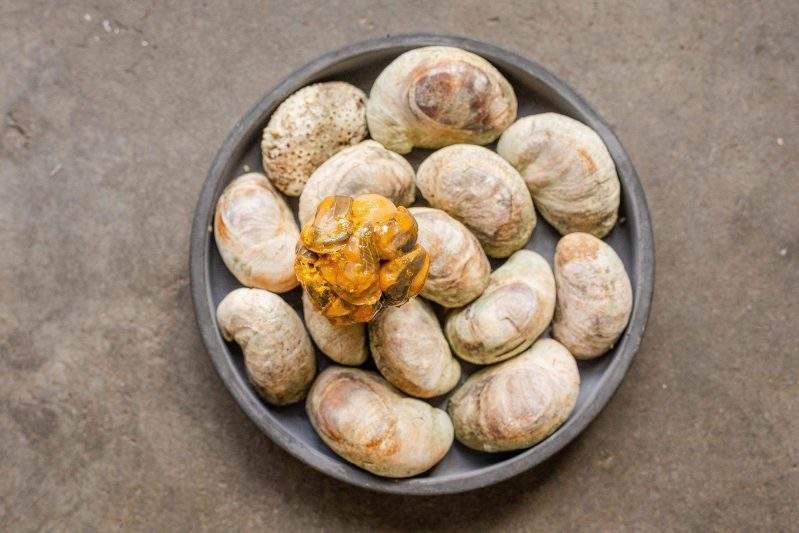
The wilderness comes to Brooklyn at Honey Badger. Unlike any other restaurant in New York, and perhaps the country, Honey Badger is known for intricate tasting menus built from ingredients foraged, fished, or hunted by co-owners Fjölla Sheholli and Junayd Juman, plus their eco-minded friends. Instead of traditional dishware, expect earthy stand-ins such as skulls or shells. Whoever crafted your dish will explain the origins of rustic options such as cod liver with acorn crackers or Long Island scallops with deer tallow—part of Honey Badger’s unique mission to connect the diner to the meal.
Eden – Chicago, IL
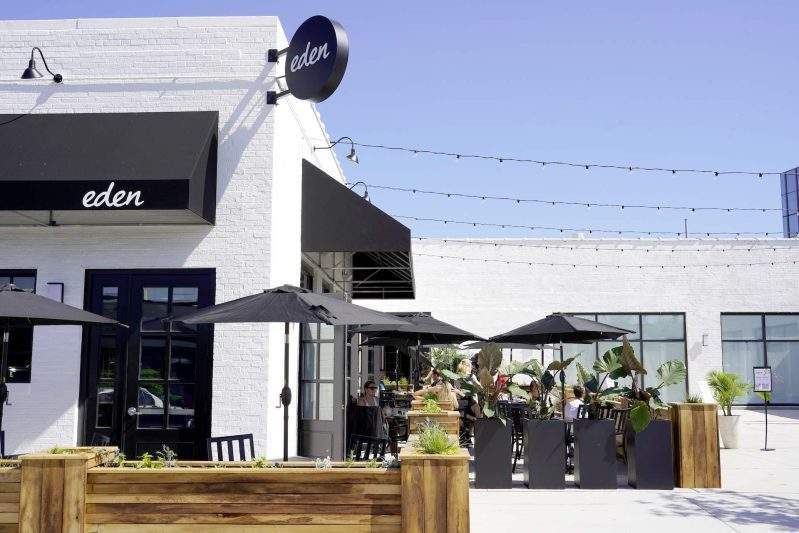
This farm-to-table favorite found a new home on Chicago’s North Side in May 2022. Since the relocation, Eden has renewed its commitment to eco-friendliness, doubling the size of its onsite greenhouse. The urban garden overlooks the Chicago River and provides some of the herbs and produce featured on Eden’s New American-meets-Mediterranean plates. For everything else, the team sources hyper-locally from Midwestern purveyors and farmers, giving them thoughtful shoutouts on the menu; the apples in the restaurant’s pork tagliatelle are picked from the family-run Nichols Farm in Marengo, Illinois, for instance.
Wokuni – New York, NY
Transparency lies at the heart of Wokuni’s ethos: All the seafood sold at this sleek Manhattan sushi and sashimi spot is traceable to its origins. Bluefin tuna comes from Wokuni’s own farm in Hirado, an island off the northwestern coast of Nagasaki, Japan. The large fish are broken down in the dining room by chefs on a monthly basis, resulting in a sought-after event that often produces a waiting list. Rare cuts are then auctioned off; diners can also take advantage of half-priced bluefin tuna from the restaurant’s adjacent fish market.
The Lonely Oyster – Los Angeles, CA
When it debuted in September 2022, The Lonely Oyster made a splash for raising awareness about saltwater cuisine. Led by fish biologist Dillon Turner, the restaurant’s team of educators ensures a meal here comes with a crash course on understanding the environmental factors that shape the menu’s flavors, while also recognizing why sustainability work is critical to the restaurant industry. Bumps of caviar keep things chic, and most of the wine is sourced from a vineyard near the ocean, so you can taste the sea breeze in every sip.
Fork – Philadelphia, PA
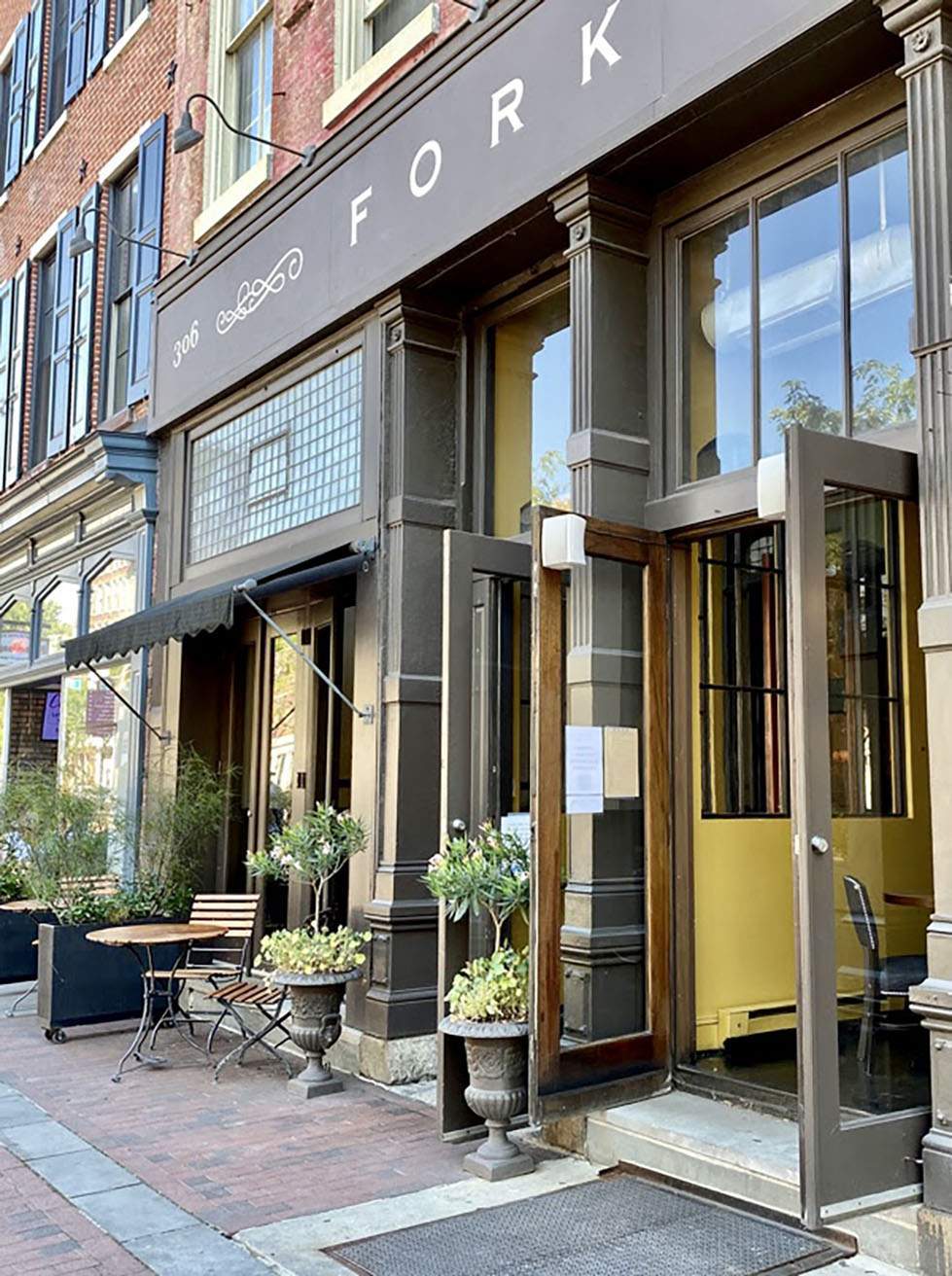
Fork has served as a farm-to-table standard-setter in Philadelphia since opening in the late 1990s. These days, the New American restaurant is a bonafide food waste warrior. Chef de cuisine George Madosky regularly breaks down full and half lambs in house and makes sausages and stocks with the off-cuts. The restaurant uses a biodigester, a system that transforms organic solid waste into water rather than composting, eliminating the need to rely on an outside company to pick up food scraps. Among other pioneering efforts, Fork also works with the app Too Good To Go to get surplus food to people who will use it.
Lucky Robot – Austin, TX
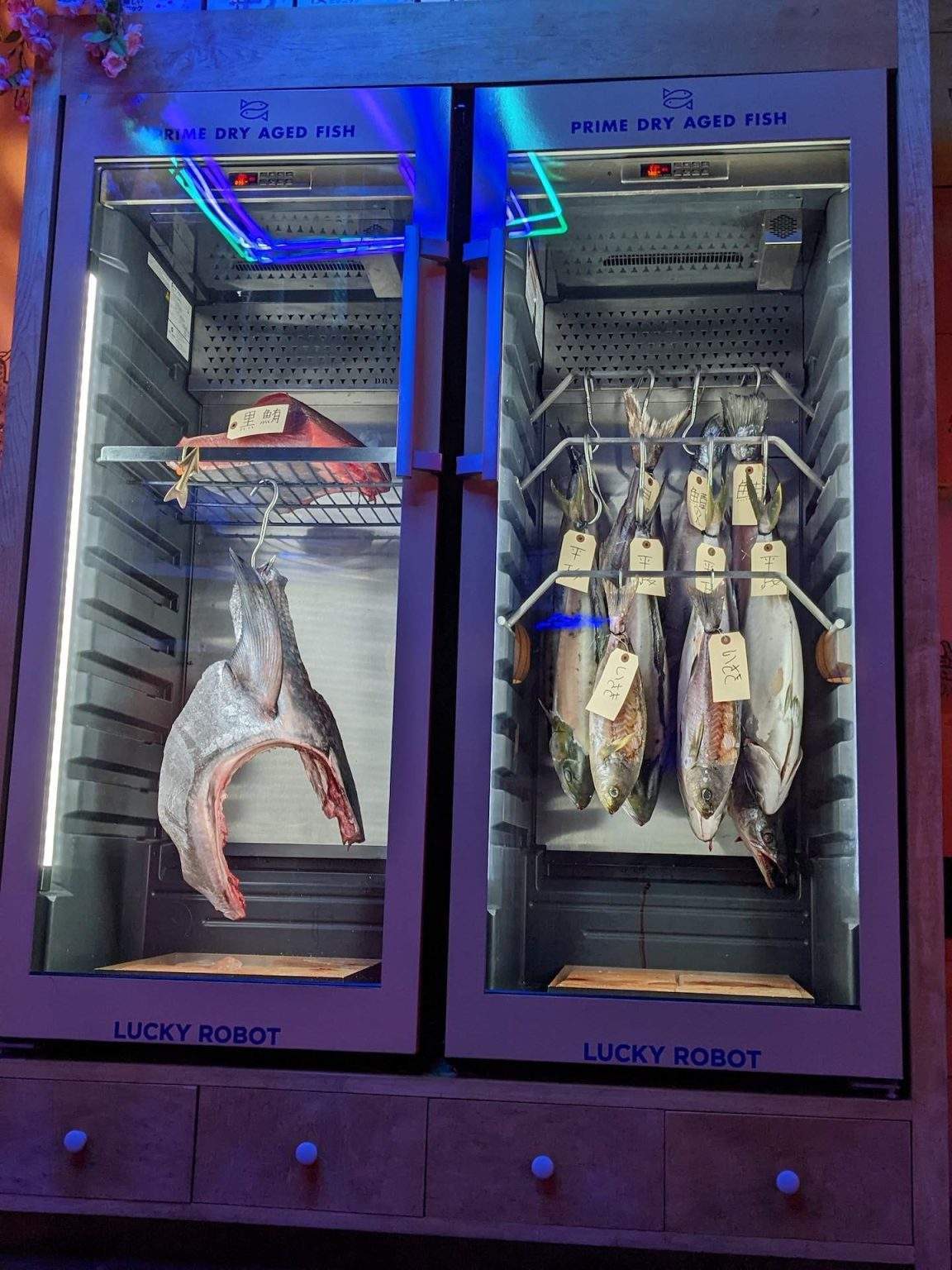
Executive chef Jay Huang (who comes from some of Austin’s best kitchens including Uchi and TRACE at the W Austin hotel) steers this Texan sushi spot—the first restaurant in the state to partner with sustainability programs at the James Beard Foundation and the Monterey Bay Aquarium. Huang also blazes trails by implementing Austin’s only dry-aging fish program, a centuries-old Japanese tradition that elevates flavor and texture. Through a new dry-aging chamber, Huang modernizes the practice with Lucky Robot’s market fish program, along with select specialty catch selections from the restaurant’s domestic fisheries partnerships.
The Anchovy Bar – San Francisco, CA
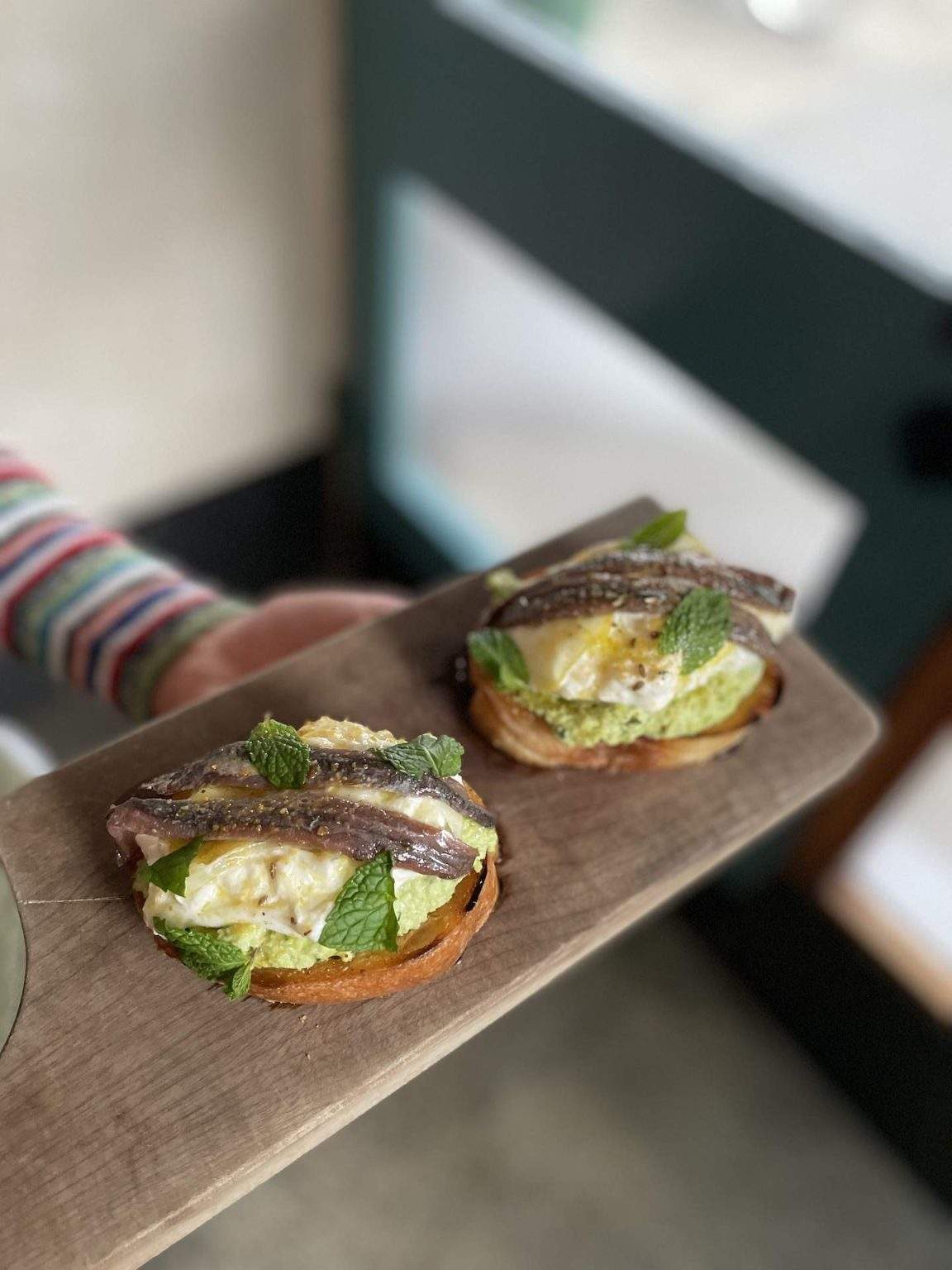
Tinned fish fans, this quirky San Francisco spot is for you. The Anchovy Bar is dedicated to chef and co-owner Stuart Brioza’s obsession with the humble bait fish, one of the most sustainable in the sea. The salty slivers are cured in-house; when they’re less than two hours out of the water, Brioza and co. behead, gut, and scale every last fish by hand. This labor of love yields fantastic results, such as rich anchovies to spread on local sourdough, served with silky burrata, or tossed into steak tartare. All serve as tasty preludes to an ever-changing menu of local seafood and produce.
Storico Vino – Atlanta, GA
Pressure from his daughter led Storico Vino’s co-owner, Pietro Gianni, to reduce waste in 2020. Since then, the restaurant quickly climbed the sustainability ladder in Atlanta. When servers at this Venetian-style wine bar ask whether you’d like still or sparkling water, they’re subtly hinting at one of Storico Vino’s many carbon footprint-minimizing efforts. For starters, the restaurant’s own purified water, plus beer and prosecco on tap, replaces the need for shipped bottles. Produce for dishes is sourced from a dedicated greenhouse on a local family farm and frying oil is sold to Southern Green Industries, a local company specializing in oil recycling services for a second life as fuel.
Ghee – Downtown Dadeland – Kendall, FL
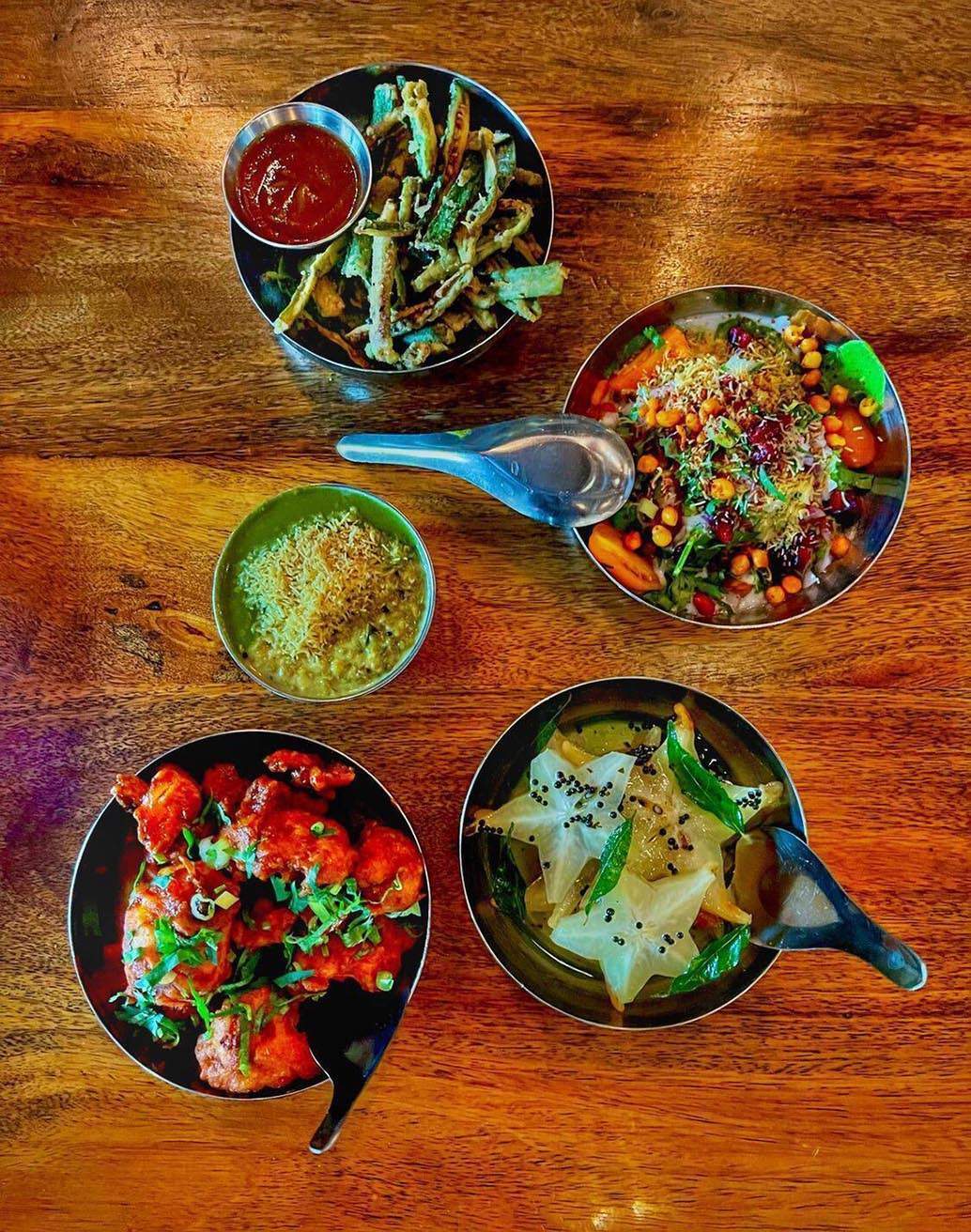
James Beard Award semi-finalist Niven Patel turns to his own farm to fuel the dishes at this quaint Indian restaurant. Much of the produce for Ghee’s menu is sourced from Rancho Patel in Homestead, a two-acre farm home about an hour south of Miami. Here, Patel grows taro leaves, tomatoes, radish, kale, and over a dozen types of mangoes, which often make their way into Ghee’s aromatic curries. By creating this unique farm-to-table ecosystem, Patel not only reduces costs, but also provides the freshest ingredients for his restaurant.
Barking Frog – Woodinville, WA

At this gorgeous Washington wine country escape, chef Dylan Herrick delivers a stunning seasonal menu, featuring innovative Northwestern fare such as vegetable flan and seared foie gras with sweet habanada pepper gelato, created in partnership with local farmers, foragers, and food artisans. Barking Frog also joins forces with a seed company to grow experimental potato, carrot, and pea varieties to enhance certain natural flavors and textures already found in seasonal crops. Herrick often debuts the specialty produce on his innovative menu before other farmers and chefs in the state, cementing Barking Frog’s reputation as a sustainability star.
Juniper Restaurant – Washington, D.C.
There’s a literal buzz surrounding this luxe modern American brasserie. Housed in hives on the rooftop of the Fairmont Georgetown, 105,000 Italian bees provide the honey for dishes such as honey granola and salad Lyonnaise. The bees also pollinate the hotel’s lush interior courtyard garden, which provides herbs and edible flowers for its extensive in-house culinary program.
404 Kitchen – Nashville, TN
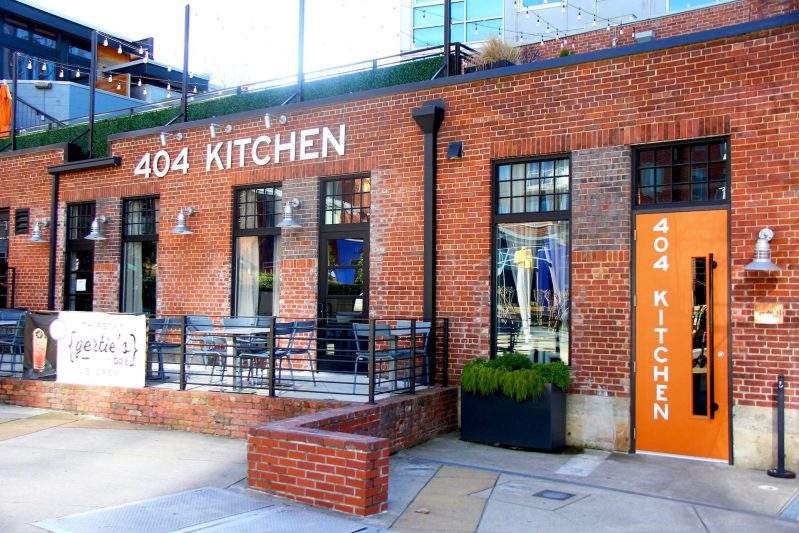
Housed in a LEED-certified industrial home in Nashville’s upscale Gulch neighborhood, 404 Kitchen takes a comprehensive approach to sustainability. Tabletops are decked with candles made from rendered beef fat, cut from meat deliveries. Chef Matt Bolus’s European-accented Southern plates are all about the nose-to-tail philosophy, best exemplified by entrees such as whole-smoked fried chicken with blue cheese ranch and Nashville hot aioli.
Melissa Kravitz Hoeffner is a writer based in Brooklyn, where she lives with her wife and rescue dog. You can follow her on Instagram @melissabethk and Twitter @melissabethk

